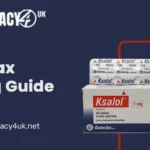Introduction to MEQC Corrective Action Analyst Job
This article will explore the critical role of a MEQC Corrective Action Analyst, focusing on their responsibilities, required skills, career paths, and the challenges they face in different industries.
Key Responsibilities of a MEQC Corrective Action Analyst
Quality Issue Identification
One of the core responsibilities of a MEQC Corrective Action Analyst is identifying quality issues. These professionals utilize various methods to pinpoint potential problems, such as data analysis, audits, and customer feedback. They closely examine production processes, tracking deviations and non-conformance events that could compromise product quality.
Root Cause Analysis
After identifying a quality issue, the next step is determining the root cause. This process often involves detailed data analysis, in which the analyst identifies the underlying factors that led to the problem. Root cause analysis is critical because it allows the company to address the core issue rather than just treating the symptoms. A proper root cause analysis prevents recurring quality issues and strengthens the overall quality management system.
Corrective Action Implementation
Once a quality issue and its root cause have been identified, the MEQC Corrective Action Analyst is responsible for developing and implementing corrective actions. Corrective actions may involve changes to production processes, employee training, or updated material specifications. The goal is to eliminate the issue at its source.
Effectiveness Verification
Implementing a corrective action is only part of the solution. The analyst must also verify that the corrective action is effective. They monitor the production process to ensure the issue does not recur. Effectiveness verification may include testing, audits, and continuous monitoring to ensure that the solution works long-term.
Preventive Action Planning
Beyond fixing current problems, the MEQC Corrective Action Analyst plays a proactive role in preventing future issues. They develop and implement preventive action plans that address potential risks before they become problems. This might involve process improvements, enhanced training programs, or updates to quality management procedures.
By proactively addressing quality risks, preventive action plans reduce downtime, save costs, and improve overall efficiency in the production process.
Required Skills and Qualifications
Technical Expertise
A strong foundation in technical skills is necessary for anyone pursuing a MEQC Corrective Action Analyst job. These professionals must have a deep understanding of Quality Management Systems (QMS) like ISO 9001, Good Manufacturing Practices (GMP), and industry-specific standards. Familiarity with these systems ensures that the analyst can effectively implement corrective and preventive actions within a regulated environment.
Additionally, understanding regulatory requirements is crucial, especially in industries such as healthcare and automotive. An analyst must stay up-to-date with current regulations and guidelines to ensure that the company remains compliant while maintaining high-quality standards.
Problem-Solving Abilities
Problem-solving is at the heart of the MEQC Corrective Action Analyst’s role. They must be able to break down complex problems, identify their root causes, and propose effective solutions. Strong analytical skills are necessary for reviewing data, conducting audits, and evaluating processes to determine where the problem lies.
Critical thinking is essential in this role because the analyst must make decisions that impact the entire production process. By making informed decisions, they help the company avoid costly mistakes and inefficiencies. Successful analysts must approach each problem methodically and think creatively when developing corrective and preventive measures.
Communication Skills
Effective communication is another key skill for a MEQC Corrective Action Analyst. They must be able to articulate quality issues, corrective actions, and preventive measures clearly to various stakeholders, including engineers, production personnel, and management. Bridging these communication gaps ensures that everyone involved in the process is aligned and working towards the same goals.
Interpersonal skills are equally important. MEQC Corrective Action Analysts often collaborate with different departments and teams, requiring them to build relationships and work cohesively with others. The ability to explain technical issues to non-technical stakeholders is crucial for ensuring smooth implementation of corrective and preventive actions.
Career Path and Opportunities
Entry-Level Requirements
To start a career as a MEQC Corrective Action Analyst, candidates typically need a degree in fields such as engineering, science, or quality management. A background in these fields provides the technical foundation necessary for understanding complex production processes and quality management systems.
Relevant experience in quality control or a related field is also valuable for aspiring MEQC Corrective Action Analysts. Internships, co-op programs, or entry-level positions in quality assurance can offer practical experience and help individuals develop the necessary skills.
Career Advancement
As they gain experience, MEQC Corrective Action Analysts can advance to higher positions within the field. Potential career paths include roles such as Quality Manager, Quality Engineer, or Regulatory Affairs Specialist. These roles come with additional responsibilities and the opportunity to take on leadership positions within the company.
Professional development opportunities, such as certifications in quality management (e.g., Six Sigma, Lean Manufacturing), can further enhance career prospects. Certifications help analysts develop specialized skills and make them more competitive in the job market.
Industry-Specific Considerations
Healthcare
In the healthcare industry, the MEQC Corrective Action Analyst job comes with unique challenges. Healthcare products and medical devices must comply with stringent regulations such as those set by the FDA (Food and Drug Administration) and GMP (Good Manufacturing Practice). The analyst must ensure that corrective actions align with these regulatory requirements while maintaining patient safety and product efficacy.
Additionally, healthcare products often involve complex manufacturing processes, which require the analyst to have a deep understanding of both the production and regulatory environment. Even minor quality issues in this industry can have life-threatening consequences, making the role of the MEQC Corrective Action Analyst critical.
Automotive
In the automotive industry, MEQC Corrective Action Analysts must ensure that all processes meet the ISO/TS 16949 standards. These standards emphasize defect prevention, reduction of variation, and overall improvement in the automotive supply chain.
The fast-paced and competitive nature of the automotive industry also means that analysts must work efficiently to address quality issues without slowing down production. They often work closely with engineers and suppliers to ensure that corrective actions are implemented quickly and effectively.
Other Industries
MEQC Corrective Action Analysts are also essential in other regulated industries such as aerospace, electronics, and pharmaceuticals. In each of these industries, they must adhere to specific regulatory standards while ensuring product quality. While the standards and challenges vary, the core responsibilities of the MEQC Corrective Action Analyst remain the same: identifying quality issues, implementing corrective actions, and preventing future problems.
YOU MAY ALSO LIKE: Alex Charfen Billionaires Compare Themselves Explains Why
Conclusion
The MEQC Corrective Action Analyst job plays a vital role in ensuring product quality and regulatory compliance across a variety of industries. Whether in healthcare, automotive, or other regulated sectors, these professionals use their expertise to identify quality issues, implement effective corrective actions, and plan preventive measures to avoid future problems.
This position requires a blend of technical skills, problem-solving abilities, and communication expertise. With the right qualifications and experience, individuals can enjoy a rewarding career with opportunities for advancement in quality management, engineering, and regulatory affairs.
FAQs
What is the role of a MEQC Corrective Action Analyst?
A MEQC Corrective Action Analyst identifies quality issues, implements corrective actions, and develops preventive plans to ensure compliance.
What skills are needed for a MEQC Corrective Action Analyst job?
Key skills include technical expertise in quality management systems, problem-solving abilities, and strong communication with various stakeholders.
What industries hire MEQC Corrective Action Analysts?
MEQC Corrective Action Analysts are hired in healthcare, automotive, aerospace, electronics, and other regulated industries.
What qualifications are required for a MEQC Corrective Action Analyst?
A degree in engineering, science, or quality management is typically required, along with relevant experience in quality control or assurance.
What career opportunities are available for MEQC Corrective Action Analysts?
Career paths include advancing to positions such as Quality Manager, Quality Engineer, or Regulatory Affairs Specialist with opportunities for certifications.










